Today’s topic discusses what SLPs need to know about trauma and how they can use trauma-informed principles in their treatment.
The podcast begins with the definition of the word “trauma.”It can seem a little bit overwhelming and hard to define, so I really appreciate the definition that comes from The Embody Lab. We then dive into the several different types of trauma-adverse childhood experiences, also known as ACEs, and how it affects communication. We will also be talking about secondary traumatic stress – a specific type of stress that can be experienced by helping professionals when they are supporting traumatized children and families.
References and resources:
- ACEs and Toxic Stress Infographic
- ACE Score Calculator
- Adverse Childhood Experiences: Information and Resources from the CDC
- Adverse Childhood Experiences: What Speech-Language Pathologists Need to Know
- Burke Harris, N. (2018). The deepest well: Healing the long-term effects of childhood adversity. New York: Houghton Mifflin Harcourt
- Hyter, Y. D. (2021). Childhood maltreatment consequences on social pragmatic communication: A systematic review of the literature. Perspectives of the ASHA Special Interest Groups, 6, 262 – 287. https://doi.org/10.1044/2021_PERSP-20-00222
- Lum, J. A. G., Powell, M., Timms, L., & Snow, P. (2015). A meta- analysis of cross-sectional studies investigating language in mal-treated children. Journal of Speech, Language, and Hearing Research, 58(3), 961–976. https://doi.org/10.1044/2015_JSLHR- L-14-0056
- Rupert, A. C., & Bartlett, D. E. (2022).
- The childhood trauma and attachment gap in speech-language pathology: Practitioner’s knowledge, practice, and needs. American Journal of Speech-Language Pathology, 31(1), 287–302. https://doi.org/10.1044/2021_AJSLP-21-00110
- Sylvestre, A., Bussières, E., & Bouchard, C. (2016). Language problems among abused and neglected children: A meta-analytic review. Child Maltreatment, 21(1), 47–58. https://doi.org/10.1177/ 1077559515616703
- Secondary Traumatic Stress
- Trauma-Informed Schools: A Framework
- What is Trauma-Informed Care?
- To sign up for a 7-day free trial, please check out: www.thedigitalslp.com/digitalslp
Full Transcript of Podcast: What SLPs Need to Know About Trauma
Episode 104 - What SLPs Need to Know About Trauma
You're listening to the Speech Space Podcast, a podcast full of tips and resources for SLPs. I'm your host, Jessica Cassity, and this is Episode 104.
Today's topic is both challenging and important. We're going to be focusing on how childhood trauma affects language and communication, and also how SLPs can use trauma-informed principles in their treatment. Now, of course, I am not a psychologist, and I do want to emphasize from the beginning that when we're working with students and clients who have experienced trauma, we may need to make referrals and get additional support from our psychology colleagues. In addition, we may need to get some support for ourselves because of the effects of secondary trauma, which is something that we're going to talk about later in today's episode. Also, this can be a difficult topic to engage with in general, especially if you have a trauma history of your own, so please keep that in mind and take care of yourself.
Before we get going, I did want to mention that this podcast is sponsored by The Digital SLP membership site, which is a site that features time-saving interactive digital resources that are all teletherapy platform-friendly. You can learn more about that or sign-up for a free trial by heading on over to thedigitalslp.com/digitalslp. Alright, let's go ahead and move on into today's topic.
The word "trauma" can seem a little bit overwhelming and hard to define, so I really appreciate the definition that comes from the Embody Lab, which is an organization that provides workshops for helping professionals. In their definition, they say that trauma can occur when there is "too much too soon, too much for too long, or not enough for too long." This definition gave me an expanded understanding of what trauma could look like, especially for children. We might think of trauma only as these hugely destructive experiences like witnessing significant violence and something like that definitely can cause trauma, don't get me wrong, but something less extreme could cause it as well. It's also important to know that the trauma is not just the event itself, but it's the effect of the event and the impact that it has on a person's health, development, and wellbeing. Two people could go through the same exact situation and one of them could experience major trauma while the other might be mostly fine.
Trauma can also take many different forms. It can be acute resulting from something that happens just once. Or, it can be chronic, meaning that it results from something that happened multiple times during a prolonged period. It can also be complex, which means that it's happened within a child's family or a caregiving system. As you can imagine, complex trauma is especially difficult because our family is supposed to protect us from trauma, not to inflict it. Now, there's a fourth type of trauma that's important for us to be aware of as SLPs, and this is called collective trauma. This refers to trauma that happens to an entire group of people, often as a result of systemic discrimination or violence. Racism is a great example of collective trauma. It's essential for us to know that we might have students who have loving, supportive families and have never directly been impacted by violence, but are still victims of collective trauma and its potential impacts on language and communication.
Okay, so we've talked about this idea that trauma is a much more expansive term than we might have originally thought, and that there are several different types of trauma. It can also be helpful to know about the specific types of events that are most likely to cause trauma for children. These events are called Adverse Childhood Experiences, also known as ACEs. We'll do just a quick overview of them in this episode, but if you're interested in learning more, Dr. Nadine Burke Harris' book, The Deepest Well, is a great resource that I used to prepare for this episode. So go ahead and check that out if you would like to take a deeper dive. It's especially helpful if you are a fellow neuroscience nerd and you want to understand more about how ACEs change our brains.
ACEs include physical abuse, sexual abuse, emotional abuse, physical neglect, emotional neglect, living with a relative who has a mental illness, having an incarcerated relative, witnessing violence toward a primary caregiver, substance abuse in the home, and divorce. You might hear someone reference a child's ACE "score," which is a tally of all of the ACEs they have experienced. Now, the higher the score, the higher a child's risk for negative outcomes, including effects on health. But it's important to remember that negative outcomes are not guaranteed and that there are definitely some potential protective factors too, which we'll get into a little bit later in this episode.
Now that we understand what trauma is, let's move into how it affects communication. There are at least three good literature reviews related to trauma and language that came out in the past 10 years, so I'll put references for all of them in the show notes. That's what we're going to be talking about right now.
The first thing to know is that trauma absolutely affects the brain, and it pretty much affects every part of the brain, so of course, language is going to be impacted as well. In terms of expressive language, the research shows that children who have experienced trauma have lower MLUs and more difficulty with naming objects. With receptive language, they have more trouble with auditory comprehension in general, especially when it comes to following directions. Children who have experienced trauma may also exhibit impaired executive function skills and have difficulty with theory of mind, self-regulation, social cognition, and participating in conversations. This is really important for us to understand as SLPs, because the effects of trauma can look very similar to ADHD and autism and other neurodevelopmental conditions. At the same time, being neurodivergent can put a student at greater risk for trauma. So this gets very complicated and we need to be cautious and work in multidisciplinary teams as much as possible.
I just wanna highlight one more finding that comes up in the research on trauma and language, and that's narratives. So many studies have found that trauma impacts a child's ability to produce cohesive narratives. This affects them academically, of course, but it can also significantly affect their lives in other ways. Being able to tell coherent stories is a safety skill essentially, and especially for a child who may be in danger at home. Now, this is hard to think about, but it's important to know that SLPs can have a powerful impact by supporting our students' narrative skills.
So when it comes to actually addressing the impact of trauma on language during speech therapy, narrative is always an important area to consider. Even if we aren't specifically addressing the effects of trauma within the speech therapy session, we can always support our students by using trauma-informed care. This is a general lens that we can apply to how we approach all students, whether we know their trauma history or not. With trauma-informed care, our guiding question is, "What happened to you?" instead of "What's wrong with you?" Using trauma-informed care basically means that we have an awareness of trauma and its possible effects. It also means that we actively avoid re-traumatizing our students.
For example, maybe we have a student who speaks unkindly to other students because that's what they've seen modeled at home, and it's a coping strategy that they use when they're afraid of being rejected. If we respond to that student's actions by sending them out in the hall or ignoring their behavior, we could truthfully be re-traumatizing them without even meaning to. We could be causing them to experience the very loneliness and disconnection that they're trying to avoid. Fortunately, many schools are now moving towards using trauma-informed practices, and SLPs can play an important role in advocating for this shift.
There's another exciting role that SLPs can play in supporting students who have experienced trauma, and we don't really need any specialized training for this one at all. The research is pretty clear that for students who experience trauma, one of the most important protective factors is supportive relationships. Having even one warm, caring adult in their life can be enough to prevent long-term negative outcomes due to trauma for our students. Isn't that amazing? I mean, of course, there are many other factors that we can't control here, but we always have the ability to be a safe adult who offers unconditional positive regard. And I just really love that! It's so powerful and something that I hope that all of you take away from this episode and keep in mind.
The reality is, though, that it can be draining to work with students who have experienced trauma. So the last thing I wanna talk about in today's episode is the idea of secondary traumatic stress. This is a specific type of stress that can be experienced by helping professionals when they're supporting traumatized children and families. It's so tricky because when we hear about some of the things that our students go through, we might be tempted to think, "My stress is so inconsequential compared to what they're dealing with." But secondary traumatic stress is real and it can absolutely have a negative impact on our quality of life. It's similar to the concept of caregiver burnout.
Now, the good news is that many of the self-care strategies that we're probably already familiar with can help with secondary traumatic stress. It's important to do things like get enough rest, eat well, exercise, and develop our own supportive relationships. Of course, there are times when these strategies might not be enough, so please look into options like therapy or caregiver support groups, if you do need them. Your mental health is so important.
On that note, I think we're gonna go ahead and wrap up there for today. Thank you so much for engaging with this difficult but important topic. If you found today's episode to be meaningful, I would be very grateful if you would take a moment to leave a five-star review to make it easier for fellow SLPs to find this show. We release new episodes twice a month on the first and third Tuesdays. And also, please don't forget to check out thedigitalslp.com/digitalslp if you are interested in exploring the membership or other content on the site. Thank you so much for listening!


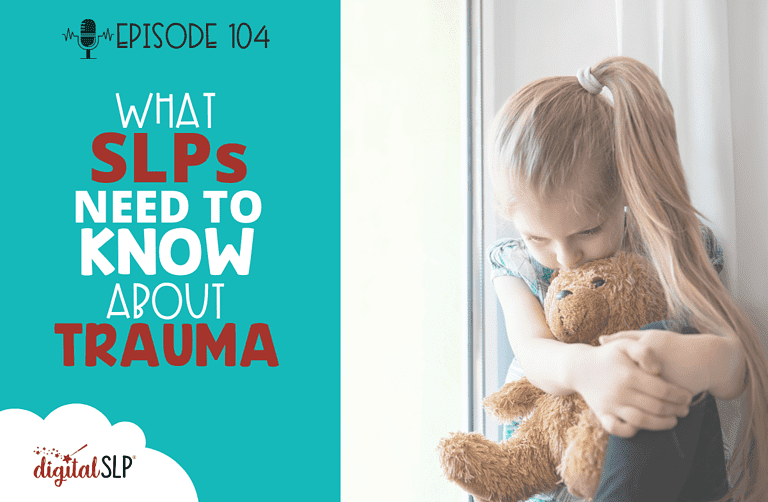
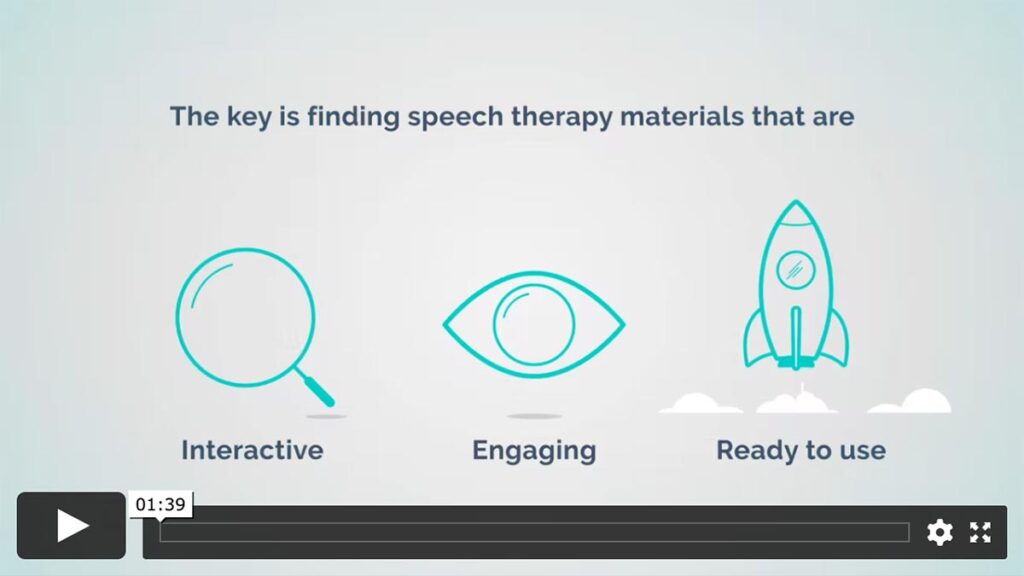


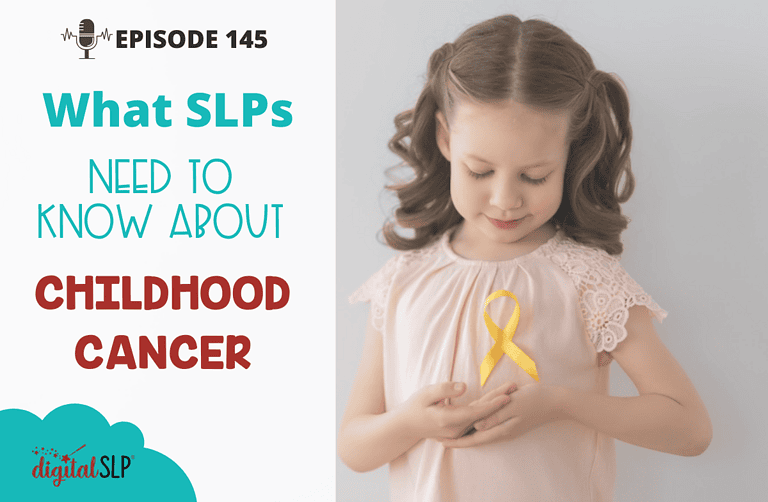


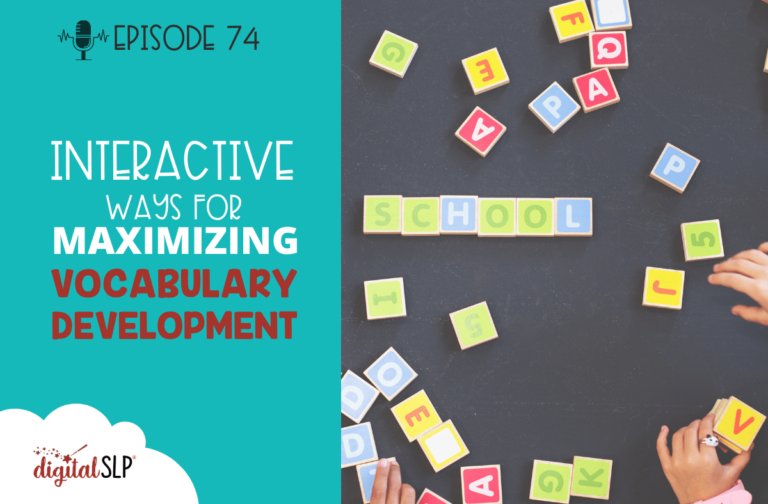
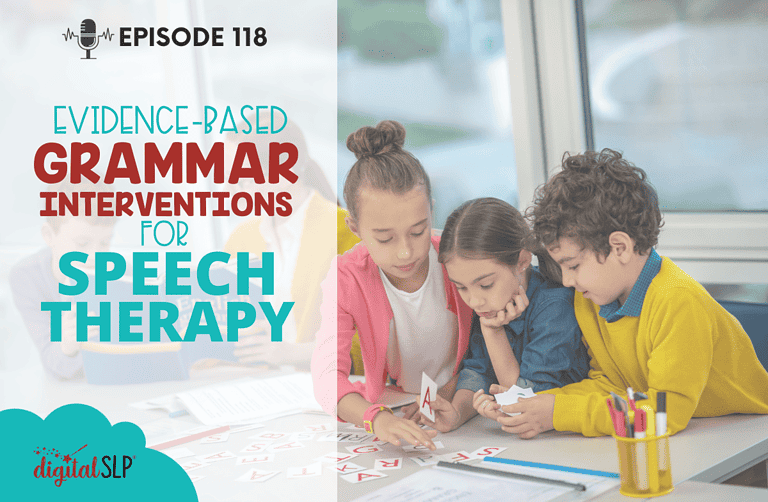
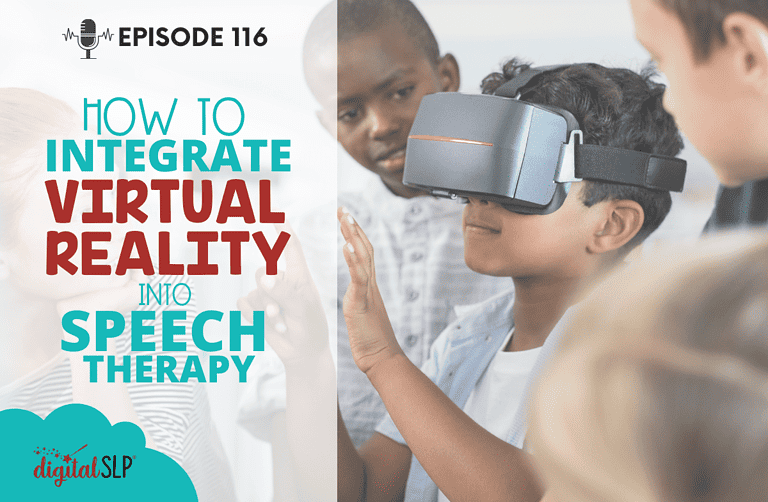

Recent Comments